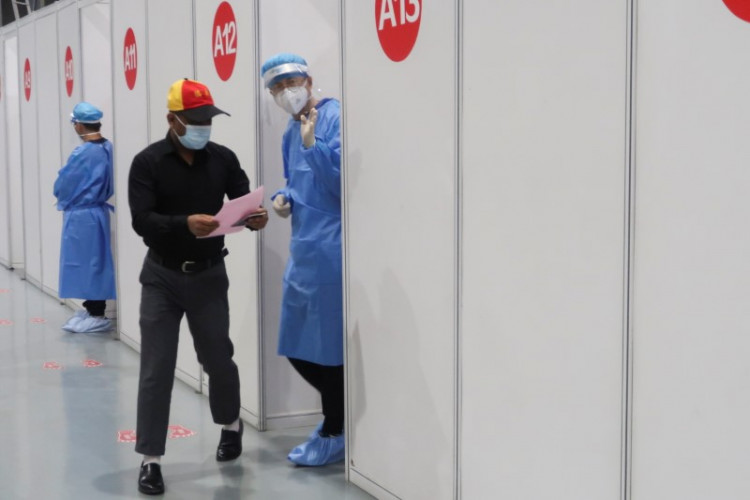According to a World Health Organization (WHO) official, the latest Omicron sublineage XBB1.5 is the "most transmissible subvariant that has been detected yet."
Scientists are continuing to collect and analyze data on XBB1.5, but major concerns will arise only if the subvariant changes its behavior and causes widespread and severe symptoms, according to experts.
According to infectious disease epidemiologist Dr. Maria Van Kerkhove, the WHO's COVID-19 technical head, there is no indication that it is more severe than previous versions of Omicron.
"I don't think we should be overly concerned at the moment because we don't have any evidence that this variant is more severe," Professor Ravindra Gupta from the University of Cambridge, said.
The WHO stated that the subvariant has been found in at least 29 countries so far and issued a warning regarding its potential for growth due to its highly contagious character.
Because of a mutation that makes XBB1.5 more likely to stick to and reproduce in human cells, it is more contagious.
According to Prof. Gupta, XBB1.5's genetic makeup changes make it easier for the virus to attach itself to human cells and assault them.
The change also makes it easier for the virus to avoid antibodies, which are proteins either from vaccinations or created by the body following an infection and which defend human cells by recognizing and killing foreign invaders like bacteria and viruses.
The WHO currently lacks solid information on the severity of XBB1.5. Experts believe the symptoms are remarkably similar to those seen in other Omicron variations.
Those infected might expect symptoms such as a runny nose, sore throat, cough, headaches, and fever, according to Prof Gupta.
Standard diagnostic kits, such as the Antigen Rapid Test (ART), are expected to detect the XBB1.5 as part of the COVID-19 family, with positive results, he said.
While the majority of the public should not be concerned about the current strain, Prof Gupta believes that the subvariant's heightened transmissibility should be of worry to vulnerable groups.
These groups include the elderly, those with underlying illnesses, and those who can't get vaccinated due to their medical circumstances.
Prof. Gupta noted that XBB1.5, which is anticipated to spread globally, will give the virus chances to mutate.
Additionally, patients with chronic infections are more likely to be immunosuppressed, take longer to recover, or are unable to do so, making them more likely to develop new variations.
According to Prof. Gupta, vaccination remains the best defense against the most recent strain.





